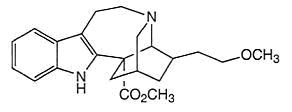 Coffee and Catharsis - How are you helping?
Coffee and Catharsis - How are you helping?Many of my clients are expressing deep fears about the future. They are concerned quite naturally...
 Opinion: Procol Harum Redux
Opinion: Procol Harum ReduxI stumbled upon the song “Conquistador” today and was stunned by the parallels between Procol...
 On Mental Illness, Inmates, And Recidivism
On Mental Illness, Inmates, And RecidivismThe admittedly small and self-selected group of inmates that I provide psychotherapy for on a weekly...
 Somewhere On the Journey to Recovery...
Somewhere On the Journey to Recovery...The Athena Festival accentuates celebrating “the wisdom of women”, and indeed at the gathering...







